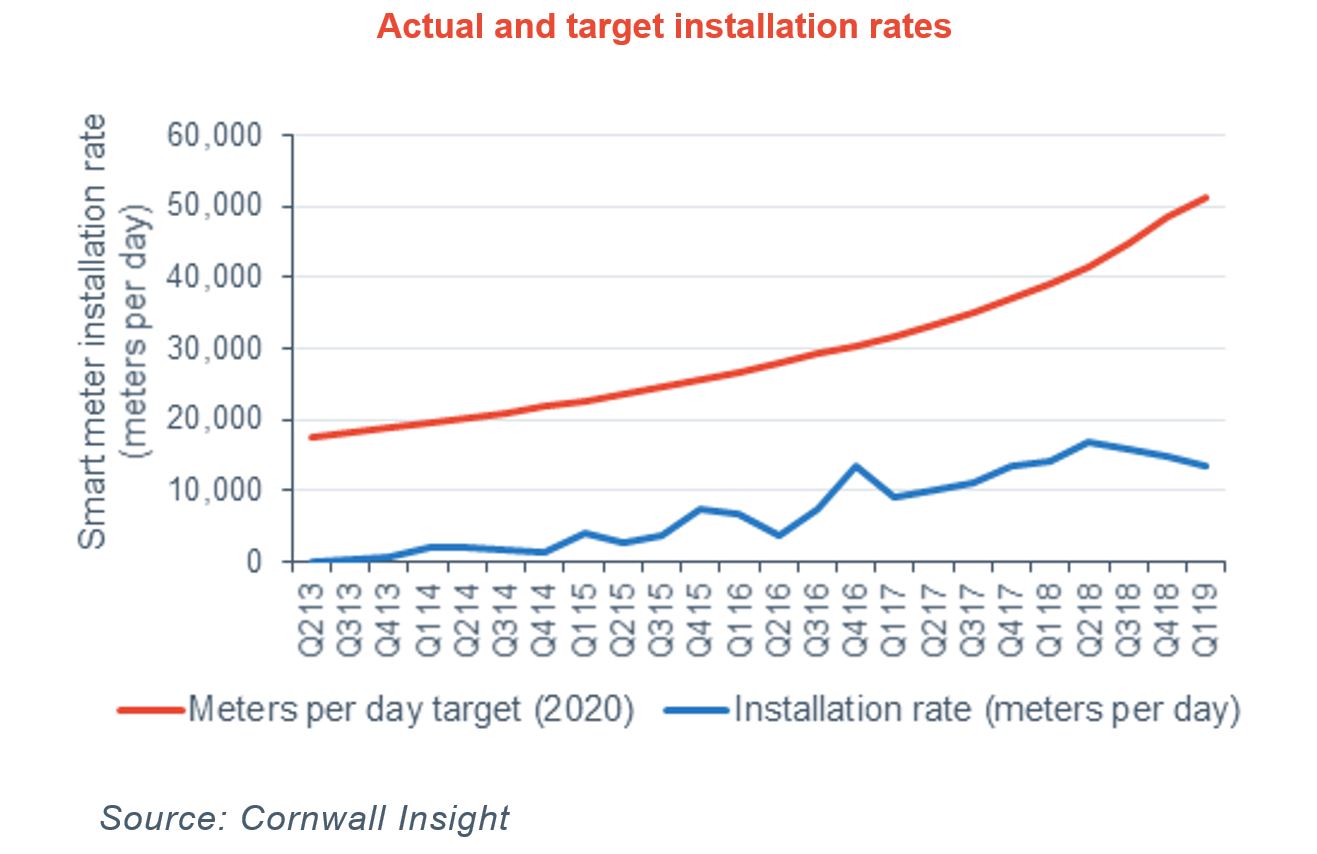Although the smart meter rollout deadline is just 18-months away for the domestic energy market, the install rate is declining. In fact, Cornwall Insight’s Domestic Smart Metering Market Report recorded a drop in the number of smart meters being installed for the last three quarters.
As a result, Cornwall Insight’s forecasts show that the installation rate would need to quadruple to meet the current 2020 target – an equivalent of installing 51,000 meters every day. The graph below illustrates the significant difference between the actual installation rate and the rate necessary to meet the target.

Oliver Archer Analyst at Cornwall Insight, said:
“The drop-off in installations will come as no surprise to many, especially given the ongoing issues with the transition to SMETS2 meters. Meeting the current deadline now looks incredibly challenging. Even an extended target of 2023 presents difficulties – install rates would still need to increase by close to 6,000 meters a day to reach this.
“As the industry finally moves over to SMETS2, technical issues are also beginning to make themselves felt. The north of England, which has historically seen higher penetrations of smart meters, saw installations fall 14% following the SMETS1 end date as suppliers reported difficulties connecting meters to the region’s communication network.
“Installations have consistently lagged on what one might expect to meet the target by the end of the decade. However, the drop off in installations shows a deceleration rather than acceleration, despite the proximity of 2020. Technical issues like those experienced in the north certainly won’t help.”

Domestic Smart Metering Market Report
The Domestic Smart Metering Market Report tracks domestic suppliers’ roll-out strategies and progresses towards their obligation. It provides insight on suppliers’ smart-related propositions helping readers understand the impact of the roll-out on retail market competition.

